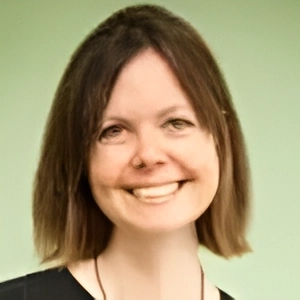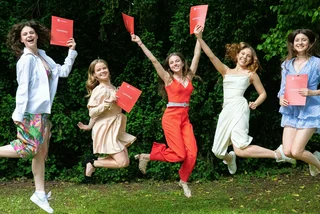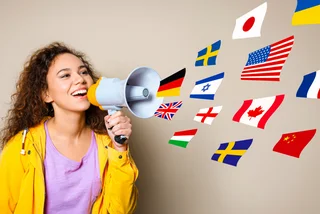“We bring culture to Prague.” So says Michael March, president of the Prague Writers´ Festival. Now in its 19th year, this year´s festival will examine the connections between history, politics and literature.
“Every year, we have a theme; this year it is ‘2001 Nights: The Art of Storytelling,´” explains March. “We wanted to bring in the theme of 1001 Arabian nights and intersect it with the contemporary world and the 2001 attacks in New York.”
March says that led them to bring in authors “no one wanted to see.” Literary greats from the Arab world and China dominate the program. March says while they are relatively unknown, they are actually quite famous and well-regarded. The festival will present stories from these fairly ‘underground´ cultures, as well as from the history of American underground comics.
Organizers hope to unify these different “worlds” by examining the common points within them.
It´s the power of their stories that also connects this varied bunch.
“Writers like Adonis, one of the great living figures of the Arab poetry world and Mourid Barghouti, a well-respected Palestinian poet,” March gives two examples of appearing authors. “It´s a cross between poetry and politics and we can say the same for the Chinese writers.
Two writers hailing from China who will be at the festival include Gao Xingjian, who won the Nobel Prize in Literature in 2000; and poet and literary critic Yang Lian. Closer to home, you can see Czech authors Jaroslav Rudiš and Jiří Suchý, plus poet and songwriter, Wolf Biermann, who was exiled from East Germany due to his satirical songs and ballads critical of the government. March says the festival´s theme encompasses the history of Central and Eastern Europe as well.
Another storytelling “path” is through the phenomena of America´s underground comics. March believes they are another way of telling a story as the storytellers are often in contrast to the rest of society. Robert Crumb, Aline Kominsky-Crumb and Gilbert Shelton will be representing their medium at the festival.
March says one of the most unique features of the Prague Writers´ Festival is the access to authors it provides.
“To actually hear these writers at the festival is something which is open, they are here for six nights and people can hear them, speak to them, it´s not just signings,” he says. “There are few opportunities to hear such writers with great knowledge.”
Indeed, the festival format does force openness and free flowing conversation on both the authors and the audience. There are three main event “categories:” public readings; conversations and meetings. At a public reading, three authors will participate in a ten minute conversation and then each will read an excerpt from their work. Conversations are roundtable discussions in which literary or political subjects are debated and meetings are held after every event in which writers and the attendees can interact and chat, and fans can get their books signed. Books of all the authors will be available for purchase at the festival. March is also proud of the language “freedom” the festival provides. The authors all read their works in their native tongue and there is a simultaneous translation into both English and Czech. Sometimes these are via headphones, other times an actor reads the work on stage.
There should be lots for people to talk about. March himself is most looking forward to the gala opening event. The conversation topic that night is “All tales are a tale I´m telling myself,” and authors set to speak include Adonis, Biermann, Crumb and Xingjian.
“What´s very exciting is the opening, such desperate stories being told,” he says. “It´s rather unpredictable and I´m extremely curious to hear what people will say and very curious about the audience.”
The festival primarily draws a younger audience and March believes this adds to the constantly changing dynamics that occur throughout the week.
“Ideas lend energy, so for the young generation it (the festival) is very exciting,” he says. “Each author represents many lifetimes of experience.”
A conversation entitled “The freedom to lie” and another discussing “Politics, Identity, Culture” should get tongues of all ages wagging. March believes the festival isn´t just literary, but a glimpse into other worlds.
“Want to know about China, Tibet, the Arab world? Here are their writers,” he says. “It´s absolutely important to have new ideas, make comparisons, have political and social structures that represent the most positive aspects of contemporary life.”
PWF is one of the oldest literary festivals in Europe. The festival dates back to London in the late 1970´s when March began holding international poetry readings. Many of the participants were from Central and Eastern European countries. In 1991, the festival moved to Prague, in part because of its literary history and tradition but also because organizers believed it should now be in a former Communist country. A little over 100 people attended the first Prague festival in May 1991; more than 2000 attended last year´s. PWF is also intent on sharing its activities with those unable to be in Prague. Its events are simulcast live online in both Czech and English.
March has a couple final thoughts on why he thinks the Prague Writers´ Festival is unique.
“The concept of a festival, in having a sense of popularity, it develops in a commercial sense. We´re happy to see writers sign books, but what it´s about is introducing writers here so their work will appear here in the future. Introducing writers who are unknown and introducing audiences to ideas.”
The festival runs June 7-11, most events occur at the Laterna Magika Theatre. The total list of 15 writers appearing at this year´s Prague Writers´ Festival: Adonis, Iain Banks, Mourid Barghouti, Wolf Biermann, Robert Crumb, Gao Xingjian, Elias Khoury, Aline Kominsky-Crumb, Ma Jian, Anne Michaels, Jaroslav Rudiš, Gilbert Shelton, Jiří Suchý, Anne Waldman and Yang Lian. For a complete program list, check www.pwf.cz.












 Reading time: 4 minutes
Reading time: 4 minutes 

 English
(Proficient)
English
(Proficient)

















